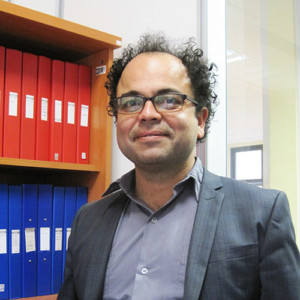Sub-topic 3. Environmentally sound & resilient urban development
This discussion is now closed. Thank you for your participation.
Moderators:
-
 Claudio Torres Slum Upgrading Consultant, Housing and Slum Upgrading Branch. UN-Habitat
Claudio Torres Slum Upgrading Consultant, Housing and Slum Upgrading Branch. UN-Habitat -
 Pireh Otieno Human Settlements Officer, Urban Basic Services Branch - UN-Habitat
Pireh Otieno Human Settlements Officer, Urban Basic Services Branch - UN-Habitat -
 Kulwant Singh Regional Advisor - UN-Habitat
Kulwant Singh Regional Advisor - UN-Habitat -
 Marcus Mayr Urban Planner, Climate Change Planning Unit, UN-Habitat
Marcus Mayr Urban Planner, Climate Change Planning Unit, UN-Habitat -
 Edmundo Werna Head of Unit at Sectoral Policies Dept. ILO
Edmundo Werna Head of Unit at Sectoral Policies Dept. ILO
Sub-topic 3. Environmentally sound & resilient urban development
Please post your comments in the forum here or send to: support@habitat3.org
50. We recognize that cities and human settlements face unprecedented global threats from unsustainable consumption and production patterns, loss of biodiversity both inside and in proximity to urban centers, pollution, disasters and climate change related risks, undermining the efforts to eradicate poverty in all its
51. We also recognize that urban centers worldwide often have characteristics that make them especially vulnerable to the effects of climate change, including extreme weather events, flooding, dust and sand storms, and sea level rise particularly affecting coastal areas, delta regions and small island developing states (SIDS) among others.
52. We commit to facilitate and support urban development in a manner that preserves rapidly diminishing natural resources, protects and improves the urban ecosystem and environmental services, promotes disaster risk reduction, while promoting sustainable economic development and people’s well-being, through environmentally sound planning, infrastructure and basic services, enhancing the quality of life of the inhabitants.
53. We commit to promote the creation of well-connected and well-distributed networks of open, multi- purpose, safe and green public spaces, including the creation of ecological corridors, to improve the resilience of cities to disasters and climate change, reducing flood risks and heat waves, and improving food security and nutrition, physical and mental health, household and ambient air quality, and attractive and livable urban landscapes.
54. We commit to give particular consideration to urban deltas, coastal areas and other environmentally sensitive areas, highlighting their importance as ecosystems’ providers of significant resources for transport, food security, economic prosperity, ecosystem services and resilience, and integrate appropriate measures to factor them into sustainable urban planning and development.
55. We commit to preserve the ecological and social function of land, support ecosystem-based solutions to promote a change in consumption and production patterns, ensuring that they will not exceed the ecosystem’s regenerative capacity. We also commit to sustainable land use containing urban sprawl and prevent unnecessary loss of productive land and land with high environmental value.
56. We commit to support local provision of basic services, leveraging on the proximity of resources, recognizing that a heavy reliance on distant sources of energy, water, food, and materials pose sustainability challenges, including vulnerability to service supply disruptions
57. We commit to strengthening the linkages and responsible management of resources like land, water, energy, materials, food, oceans and seas, freshwater resources as well as the production and environmentally sound management of waste, minimization of hazardous chemicals, and the mitigation of emissions of greenhouse gases and air pollutants, taking into consideration urban-rural linkages, functional supply and value chains in the full-range of resource requirements vis-à-vis the environmental impact and sustainability, striving to a progressive transition towards a circular economy.
58. We commit to urban planning processes that incorporate integrated water resources planning and management, considering urban-rural linkages, at the local and territorial scales, ensuring the participation of multiple sectors, stakeholders, and communities.
59. We also commit to promote sustainable use of water through a holistic water cycle approach, rehabilitating water resources within the urban area, reducing and treating waste water, minimizing water losses, promoting water reuse, increasing water storage, retention, and recharge.
60. We commit to promote environmentally sound waste management, reaffirming reduction, re-uses and recycling of waste, setting zero-landfill targets, and converting to energy only the waste that cannot be recycled.
61. We commit to support local authorities to develop renewable energy and energy efficiency which are essential to enable reduction of greenhouse gas emissions, achieve sustainable consumption and production patterns, and create new jobs, improve public health, and reduce the costs of energy supply.
62. We commit to make sustainable use of natural resources and focus on the resource-efficiency of raw materials like concrete, metals, minerals and land, establish safe material recovery and recycling facilities, and promote development of sustainable and resilient buildings utilizing local and recycled materials.
63. We commit to strengthen resilience of cities and human settlements including the quality of their infrastructure by adopting and implementing integrated policies and plans in line with the Sendai Framework for Disaster Risk Reduction 2015-2030, mainstreaming holistic disaster risk reduction and management at all levels, reducing vulnerabilities and risk levels, enabling households, communities, institutions and services to resist, absorb, adapt to and rapidly recover from the effects of hazards, including shocks or latent stresses.
64. We commit to shift from reactive to more proactive risk-based, all-hazards and all-of-society approaches, while also ensuring timely and effective local disaster response to address the immediate needs of inhabitants following a disaster, as well as the integration of the ‘’Build Back Better’’ principles in the post- disaster recovery process to integrate the lessons from past disasters into future planning and resilience- building measures.
65. We commit to promote national, sub-national and local climate action, including climate change adaptation and mitigation, and to support cities, their inhabitants and all local stakeholders as key implementers. We further commit to support the shift to a low- greenhouse gas emissions energy system in urban areas, consistent with the objective of the Paris Agreement on climate change of holding the increase in the global average temperature to well below 2 degrees Celsius above pre-industrial levels and pursue efforts to limit the temperature increase to 1.5 degrees Celsius above pre-industrial levels.
